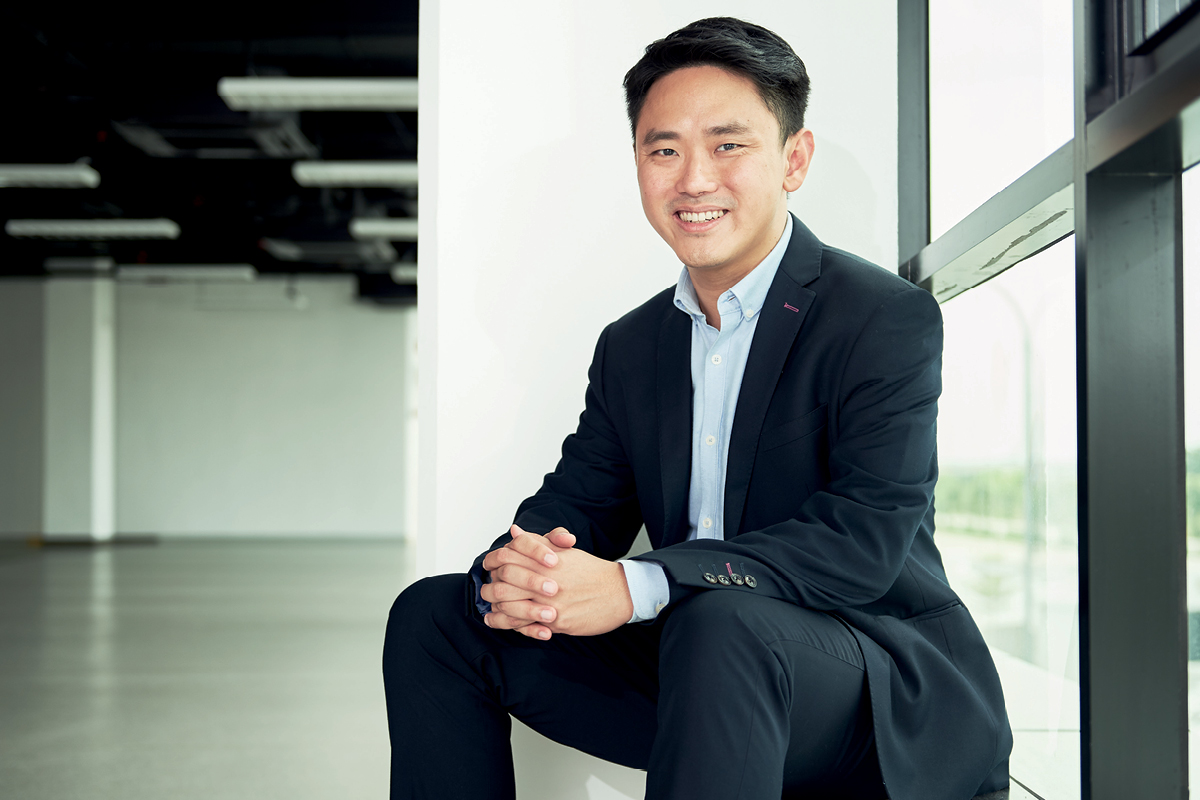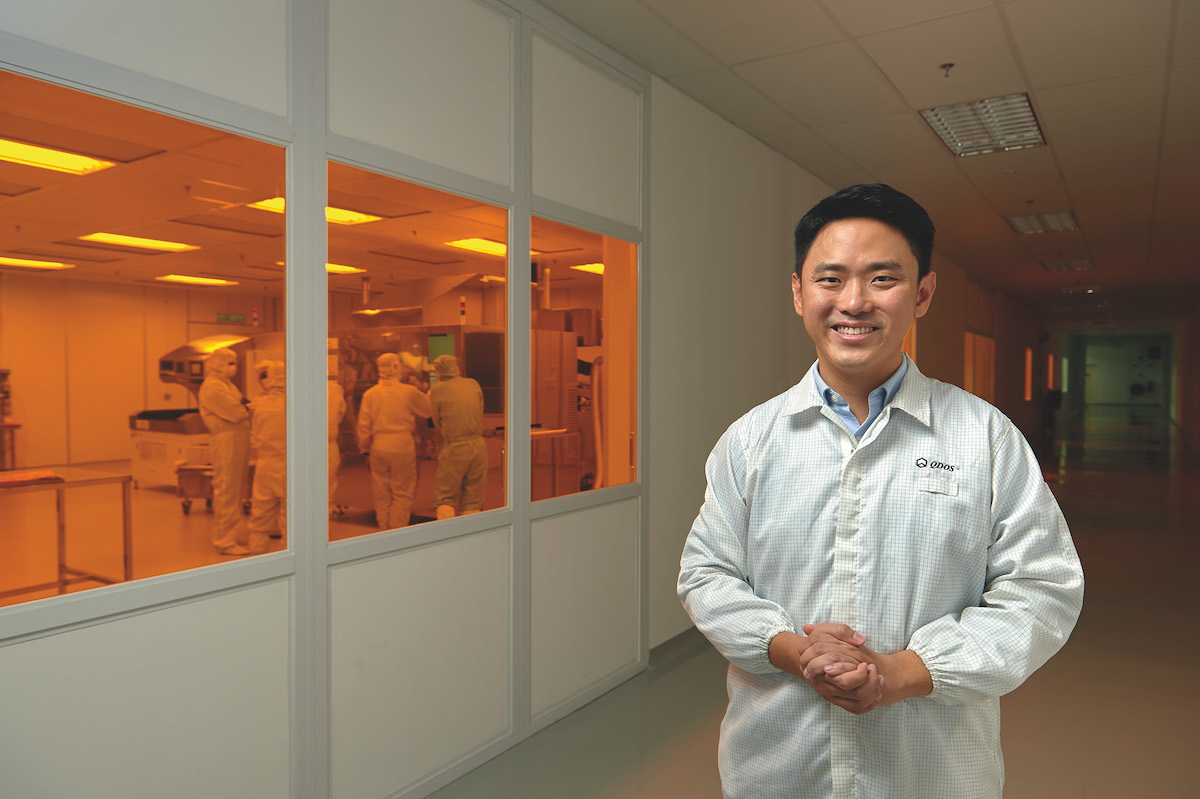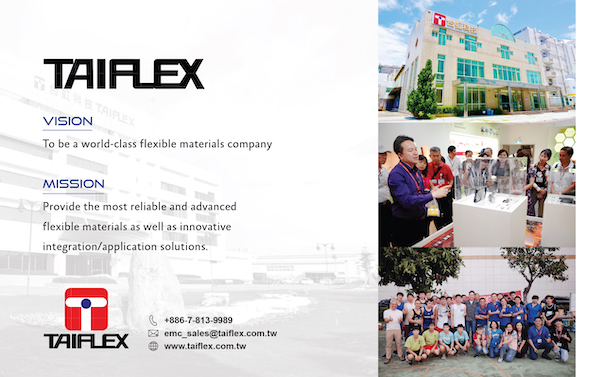“This industry is full of challenges,” says Jeffrey Hwang. Jeffrey joined the family business in 2011 after completing his studies at Cambridge. Gradually rising through the ranks, Jeffrey went from Project Manager to Executive Director of the Malaysian electronics company, Qdos Flexcircuits.

“I’ve interned at a British firm, as a Junior Consultant as well as a Corporate Finance intern at PricewaterhouseCoopers,” he adds. “PricewaterhouseCoopers has got nothing to do with electronics, but that gave me essential corporate finance and management accounting knowledge.”
Representing the third generation of the Hwang family, Jeffrey is open about the fact that he wants to propel and bring forward the existing business into strategic growth areas with global reach and solid engineering grounds.
Being a small player in a US$60 billion market, Qdos Flexcircuits aims to achieve goals in its own way and at its own pace. “We are doing it the small way. Eventually, I am hoping to bring this company to a larger scale,” Jeffrey says.
To achieve the company’s desired growth, Jeffrey has implemented a fully integrated ERP system and further invested in new technology. He has also spearheaded the opening of a new semiconductor factory in Penang, Malaysia. “Hopefully, this will be a kick-starter for us to work on a more extensive scale and create higher sales revenue,” he says.
Additionally, Jeffrey is striving to establish a niche for the company to thrive. This industry is dominated by technologically leading Japanese/Taiwanese firms and rapidly expanding state-backed Chinese firms.
Qdos’s niche is the sweet spot between the two. “High-mix low-volume manufacturing gives us an advantage over our competitors because it requires more design work as well as higher process R&D content,” Jeffrey explains. “Being small gives us agility and flexibility to cater to dynamic customer requirements.”
But there are many challenges to overcome to achieve the niche advantages. The circuit board ecosystem in Malaysia doesn’t have the economies of scale and often loses out to other nations in terms of process technologies, material supply and talent pool.

“That’s why we’ve set up a plant in China to help connect the dots, and innovate supply chain solutions to integrate essential resources to achieve our vision,” he says.
The electronics industry in Malaysia has changed in the past few years. Jeffrey explains that people have become focused on the elements of fine-tuning. “This is driving the growth of the electronics industry. I don’t know if we need to thank Donald Trump – although I’m not a fan. However, one point he got right is that he’s trying to focus more on manufacturing and production,” he says.
“I’m happy to see that over the past couple of years, there’s less so-called financial innovation, or fewer complex, derivative products that are rather hollow. Instead, we have more startup entrepreneurs and new engineering products.”
A provider of telecommunications, automotive and consumer electronics to military and aerospace customers, Qdos operates in more than 20 countries including the United States, Germany and Japan.
Established in 1994, the company prides itself on the ‘QDOS’ pillars of Quality, Delivery and Outstanding Service.
Over the years, Qdos has run into several challenges – all of which have taught Jeffery to become practical and strategic. Jeffrey says one method he has come to appreciate is the power of an idea.
“I admire the philosophy of ‘good to great’ by Jim Collins. It’s not new, but it fits my company well whereby we are transitioning from a conventional local homegrown business to become the new kid on the block to achieve sustainable competitive advantage in the global market,” he says.

“I tell my guys, especially those who are very experienced, ‘No bad company would survive for 20 years.’ Although, now is not the time to think about being good but rather, how to be great.”
“Now is not the time to think about being good, but rather, how to be great.”
Since coming into a position of leadership, Jeffrey has been focused on motivating his people with this ‘good to great’ philosophy. It was important for Jeffrey that the team understood and appreciated how and why Qdos has survived for the past 20 years. “I joined when I was around 25 years old,” Jeffrey recalls.
“I needed the team to say, ‘Let’s accept this young man’s challenge to come up with something new, as well as upgrade our technology and implement changes to help improve productivity and company performance.’”
“I needed the team to say, ‘Let’s accept this young man’s challenge to come up with something new.’”
Qdos also promotes an active lifestyle for employees. “I run, so I try to encourage the staff to run,” Jeffrey says. “We also try to make sure everyone is aware of what is going on in the company through a quarterly town hall.”
Ultimately, Jeffrey intends to create a company that customers are proud to associate with and where employees are pleased to work. Jeffrey plans for Qdos to be known as a technology leader.
“The Qdos brand image – and the quality of our brand image – is powerful. It’s not just about the size. It’s also about the substance,” he says.
For future growth, Jeffrey has his eyes on semiconductor applications, with the help of Qdos’s latest product families Chip of Flex (CoF) FPC and integrated Semi-Additive Process (iSAP) substrates.
Semiconductor is the crème de la crème segment of the electronics industry and is forecast to further prosper (albeit the recent slump due to the trade war) in the era of 5G, electric and semi-autonomous cars and high-performance computing.
“Semicon is currently dominated by Japanese, Taiwanese and Korean companies. We are probably the first Malaysian company,” Jeffrey says. “So, right now, I’m making sure the brand is moving.”
Proudly supported by:



